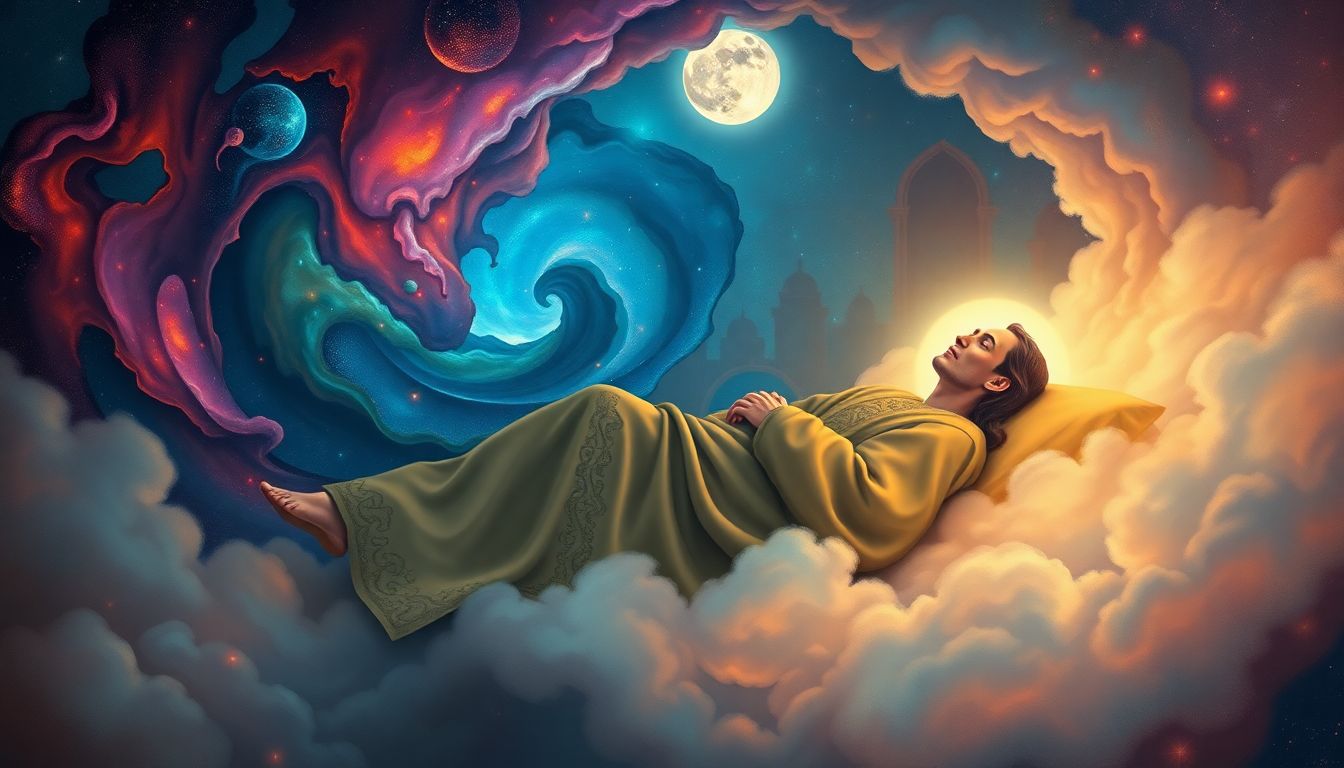For centuries, dreams have been a source of fascination and mystery, regarded as more than fleeting subconscious thoughts. Many ancient civilizations believed that dreams carried profound meanings, serving as divine messages, prophecies, or insights into the human psyche. In this article, we’ll explore how different cultures interpreted dreams and what these beliefs tell us about their understanding of the world.
Dreams in Ancient Cultures
1. Ancient Egypt: Dreams as Divine Guidance
The Egyptians saw dreams as messages from the gods or spirits of the deceased. Specialized dream priests interpreted visions based on symbolic meanings.
- Common Symbols:
- The Nile River: Signified life, abundance, or change.
- Serpents: Represented healing and transformation.
- Dream Incubation: Egyptians practiced rituals to induce meaningful dreams, often in temples dedicated to gods like Imhotep or Serapis.
2. Ancient Greece: Dreams as Prophecies
The Greeks believed that dreams were direct communications from gods like Zeus or Apollo.
- Prophetic Dreams: Foretold future events or divine will.
- Healing Dreams: Associated with Asclepius, dreams in his temples guided priests in treating illnesses.
- Philosophical Views:
- Plato considered dreams a gateway to higher truths.
- Aristotle viewed them as reflections of waking thoughts and emotions.
3. Mesopotamia: Omens in Dreams
In Mesopotamia, dreams were thought to be omens, often warning of future events.
- Royal Dreams: Kings’ dreams were considered especially significant, often dictating political decisions.
- Dream Dictionaries: Early examples of dream interpretation texts were found here, cataloging symbols like animals and celestial phenomena.
4. Ancient China: Dreams as Soul Journeys
The Chinese believed dreams allowed the soul to wander beyond the physical body.
- Dual Meanings: Dreams could provide wisdom or serve as warnings.
- Symbolism: Dreaming of fire indicated transformation, while water symbolized emotions.
5. Native American Tribes: Dreams as Spiritual Connections
Many Native American cultures viewed dreams as sacred connections to ancestors or spirit guides.
- Vision Quests: Individuals sought spiritual guidance through dreams during ritualistic fasts and solitude.
- Animal Totems: Animals appearing in dreams were seen as personal spirit guides offering wisdom.
Common Themes Across Civilizations
Despite cultural differences, many ancient societies shared common dream-related beliefs:
- Dreams as Communication: Whether from gods, ancestors, or spirits, dreams were often viewed as a form of guidance.
- Dreams as Healing Tools: Many cultures used dreams to diagnose and treat illnesses.
- Dream Symbols: Interpreting recurring symbols helped people find meaning in their waking lives.
How Can Ancient Dream Beliefs Apply Today?
Even in modern times, dreams can offer insights into our thoughts, fears, and desires. While we may not consult temple priests, many people still seek meaning in their dreams through symbols, psychology, and spiritual practices.
Unlock the Meaning of Your Dream
After reading the interpretation of your dream, you can have a free one-card tarot reading to find out if it is positive or negative.
Click here for your free reading!

👇One Card Tarot Reading👇
If you're interested, you can try a free online one-card tarot reading. This simple yet insightful tarot draw can help you gain a glimpse into whether your upcoming experiences might lean toward the positive or the negative. Ready to discover what the cards hold for you? 🌟
Draw a card nowDreams spark connection and insight. Share!